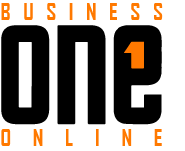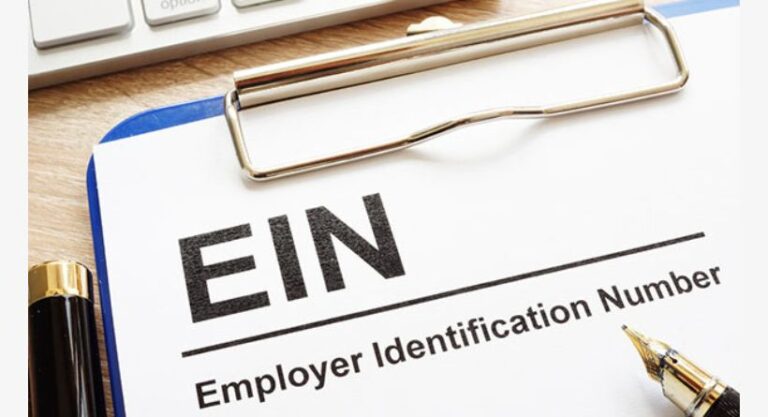Most companies that employ people need an EIN from the federal government.
- Businesses need a federal tax identification number (FEIN) in order to get a company license, submit tax returns, and use a variety of other essential services.
- Without workers, sole entrepreneurs and independent contractors do not need an FEIN.
- A company’s FEIN may need to change in certain situations.
- This article is intended for self-employed individuals and proprietors of small businesses who want guidance on obtaining a federal tax identification number.
A federal employment identification number (FEIN) for your firm must be obtained before you can establish a bank account, apply for a business license, or submit a tax return. Discover what an FEIN is and how to get one by reading on.
A federal tax identification number (FEIN) is what?
Entities that do business in the US are given a federal tax identification number (FEIN), commonly referred to as an employer identification number (EIN). The FEIN is a special nine-digit business identification number that functions similarly to an individual’s Social Security number. An individual’s Social Security number serves as their tax identification number, often known as their tax identification number or TIN. The two types of numbers are simple to muddle. Just keep in mind that one is for people, while the other is for legal persons.
The IRS and other governmental bodies may identify and monitor the tax and financial operations of business organizations thanks to a FEIN. It’s necessary to submit tax reports, establish retirement funds and health accounts to provide workers with medical and dental benefits, among other things.
Who needs a FEIN?
Although many small businesses need a FEIN, not all do:
- any company that employs people
- Any company that conducts its operations as a corporation or partnership
- Any company that submits tax returns for employment, alcohol, tobacco, or guns
The following businesses normally do not need a FEIN:
- Those that run a single proprietorship
- those who don’t hire staff
- Those who, as mentioned above, are exempt from paying some taxes
If you start your firm as a sole proprietor and don’t get a FEIN, you could find out later that you need one—especially if you want to grow or reorganize it into a corporation and/or recruit staff. In actuality, you will need a FEIN if you decide to subsequently incorporate. A FEIN is a crucial piece of information about your company when you file local, state, and federal taxes.
What additional situations call for a FEIN?
When your business pays taxes of any type or issues employee-related tax forms like W-2s, you also need a FEIN. At the conclusion of each tax year, employers must provide W-2s to their staff. Your FEIN is included in every payroll report, including the monthly, quarterly, and yearly tax forms that may be submitted by a reputable payroll processing business.
Every independent contractor you paid at least $600 throughout the tax year must get a 1099, which must be completed with your FEIN.
A FEIN is required not just by your company but also by your workers and outside contractors when they file their tax returns.
How do I get a FEIN?
1. Ascertain if you qualify for a FEIN.
Your principal place of business must be in the United States or one of its territories, and you must have a valid Social Security number or another kind of tax identity, such as another FEIN, in order to be eligible for a FEIN.
The bulk of your revenue as a company owner comes from a practice that is located in the United States or one of its territories. Consequently, you can still be qualified for a FEIN even if you run another firm outside of the United States. The individual requesting a FEIN need not be the company’s owner, but they must be intimately familiar with and deal with its financial matters. A secretary or administrative assistant may also apply for a FEIN; all they need to do is sign Form SS-4 and fill out the third-party designee section with their information.
2. Compile the data required by the IRS.
The details on Form SS-4: Application for Employer Identification Number are required by the IRS. To get a FEIN, you must first provide a physical address for your company (with a location in the United States).
You must indicate your company’s legal structure, such as LLC or corporation, on the application form. You must mention the organization’s members if your company is an LLC. You should elaborate on the nature of your company.
You’ll need the following extra information when applying:
- the justification for your FEIN application. As an example, you can be starting a new firm or restructuring an old one.
- The precise day when your firm was founded or purchased.
- the description of the product or service, as well as the sector your firm is in or that you continue to get business in, such consulting or retail.
- when your company initially started paying staff salaries.
- the day on which your accounting or fiscal year ends. If you choose to pay your taxes throughout the course of the year, this is usually the month of December.
- The number of workers you anticipate having in the next year.
3. Submit an online, telephone, or postal application for a FEIN.
There are various methods to apply for a FEIN if you are obliged to have one, including:
- Call (800) 829-4933.
- via mail or fax: On the IRS website, you may obtain Form SS-4 as well as the local fax number and postal address.
- The IRS website states: You may submit Form SS-4 electronically or engage in a live chat interview in which questions are asked and, if necessary, a FEIN is provided. From 7 a.m. to 10 p.m. EST, Monday through Friday, this service is accessible.
It will take two weeks for your number to become active in the IRS system, regardless of the method you use.
You may decide that it’s worthwhile to apply for a FEIN even though your company is not obliged to have one. There is no cost associated with doing this, and you never know when you could decide it’s time to recruit a staff member or when your company’s needs might change.
When must I update my FEIN?
If you already have a FEIN, you don’t need to alter it unless the IRS deems it necessary under unusual circumstances.
If your company is a corporation, you must update your FEIN if:
- Your company now operates as a partnership or as a single proprietorship.
- A merger results in the creation of a new company.
- Your company becomes a division of another company.
If your company is a partnership, you must update your FEIN if
- The business becomes a sole proprietorship.
- Your company is incorporated.
- A former partnership is replaced by a new one.
If you are a single owner or an LLC and hold a FEIN, you must update it if any of the following conditions apply:
- You’re going through bankruptcy.
- You convert your company to a partnership or corporation.
- You come into possession of another company.
If the name or location of your firm changes, you do not need to update your FEIN.
FAQs FEIN
What distinguishes a FEIN from a tax identification number?
The only people who typically get a FEIN are those who apply for a federal employment identification number. The FEIN will make it simple to identify your company on tax filings and payroll. Many states do not provide a separate number; therefore, a FEIN may serve as a tax identification number. With a few exceptions, the majority of company kinds may get a FEIN. If you’re a single owner, for instance, you may use your Social Security number as your tax identification number. Your tax ID number will need to alter and turn into a FEIN if you finally decide to incorporate your firm.
A FEIN is it public?
Even though many organizations use their FEINs to submit their taxes and other financial data to the IRS and other governmental bodies, this information is open to the public. Businesses that corporations do business with must exchange their FEINs. It is often required for completing W-9 forms, giving credit references, and exchanging other types of information. Sometimes disclosing your FEIN results in undesired exposure, which puts you at risk. FEINs should be used and communicated discreetly, much like Social Security numbers, to lower the possibility of identity theft and fraud.
What if I’m not certain that I need a FEIN?
You may check the website of the Internal Revenue Service if you’re unsure if you require a FEIN. A decent generalization is that you may utilize your Social Security number if you include them on your personal tax return, according to Melvin Springer, a financial professional located in New York. You will need to have a FEIN if you want to declare them on a company tax return.







